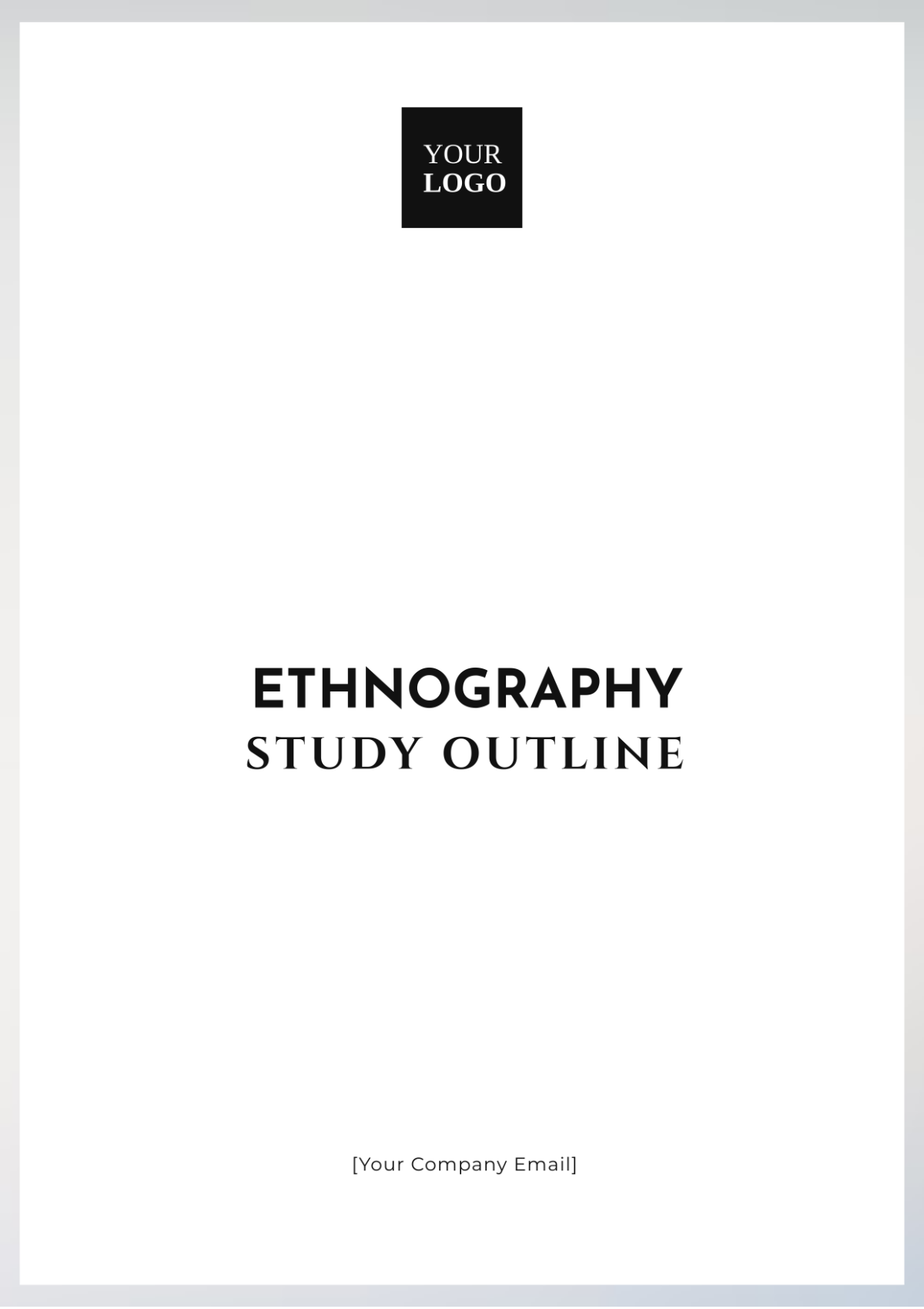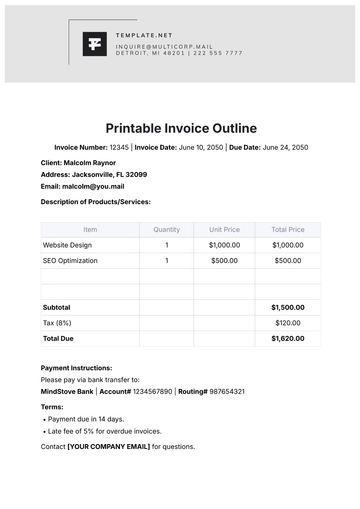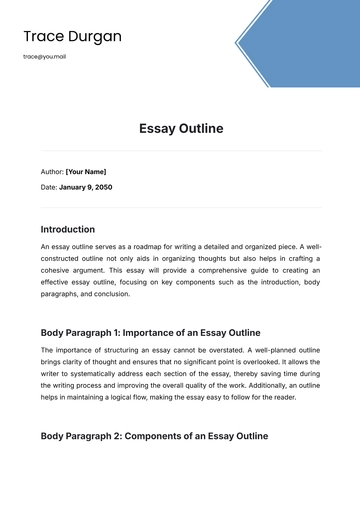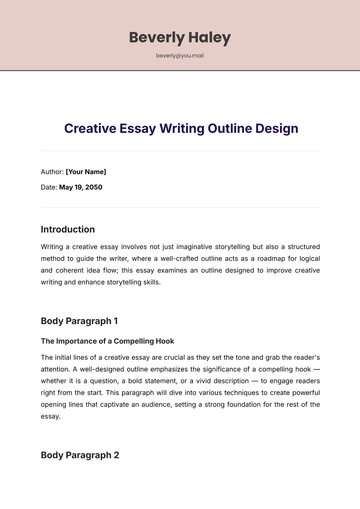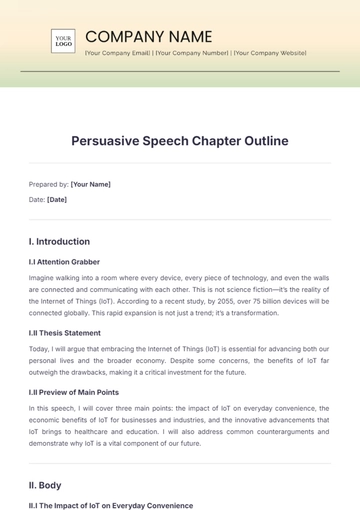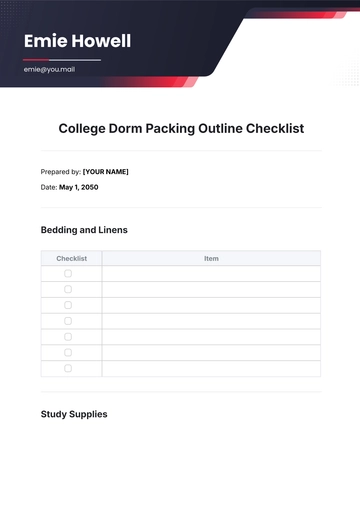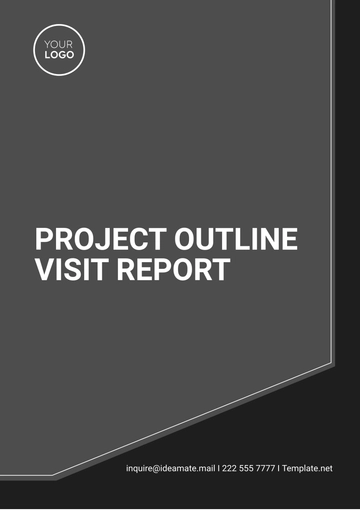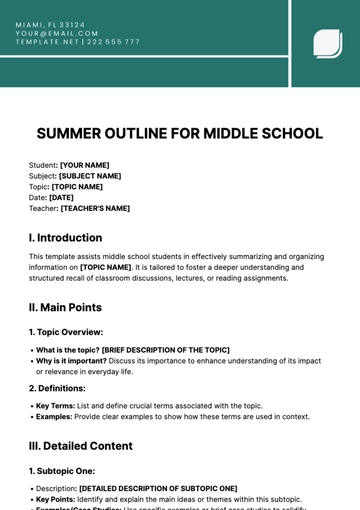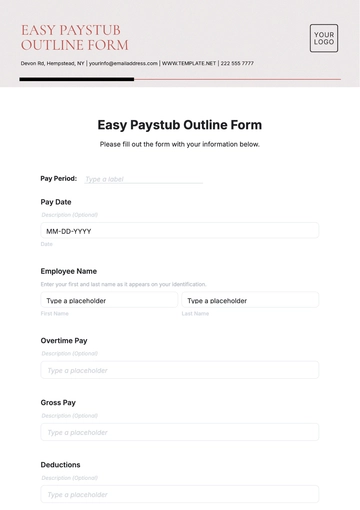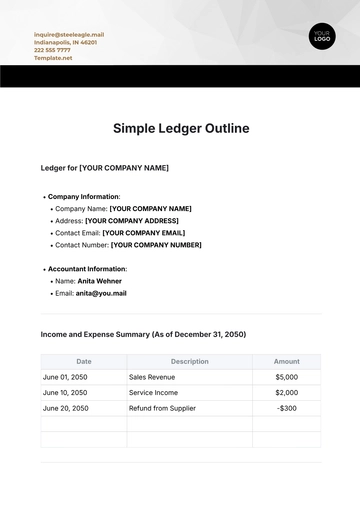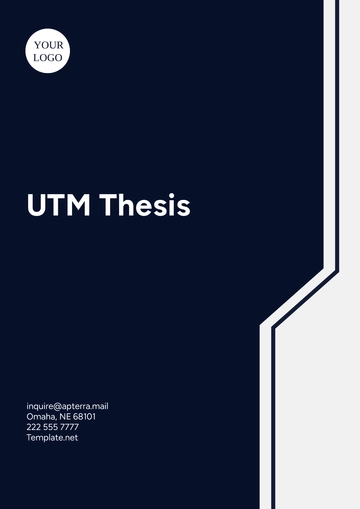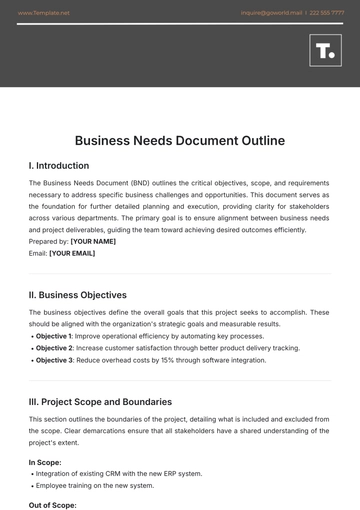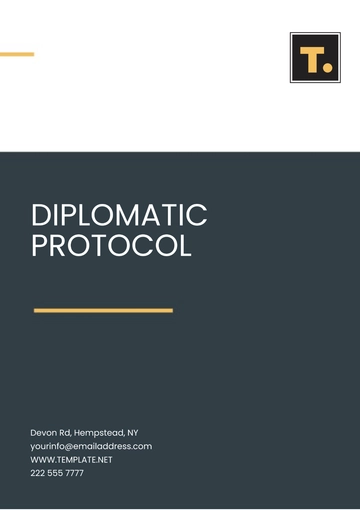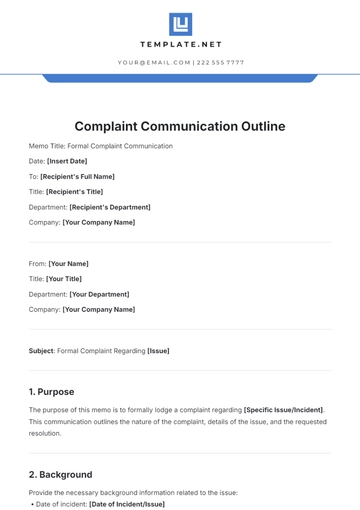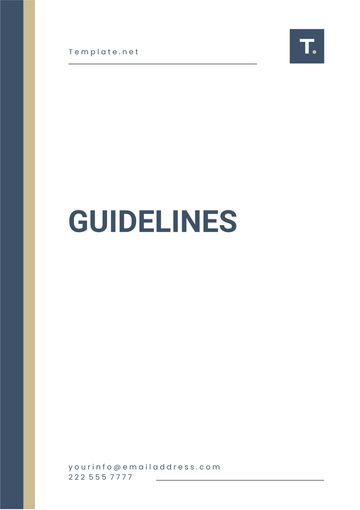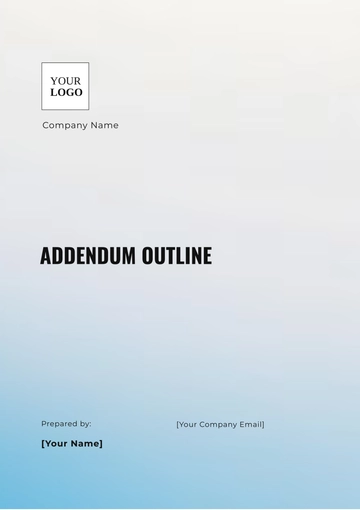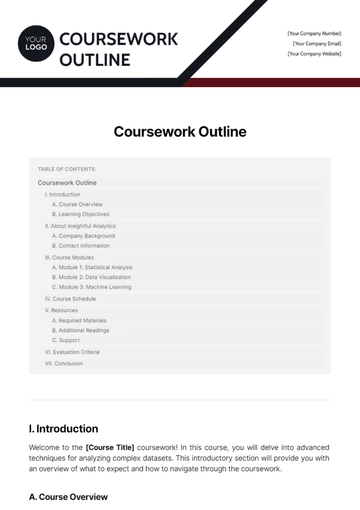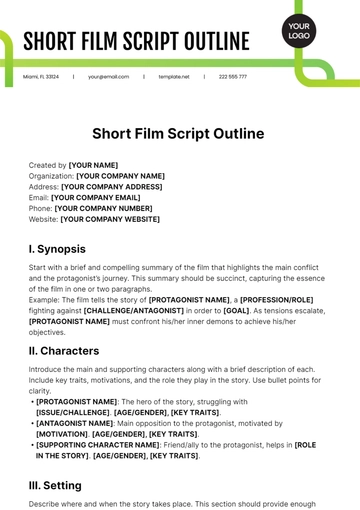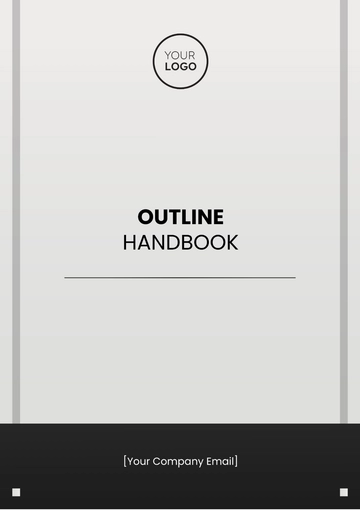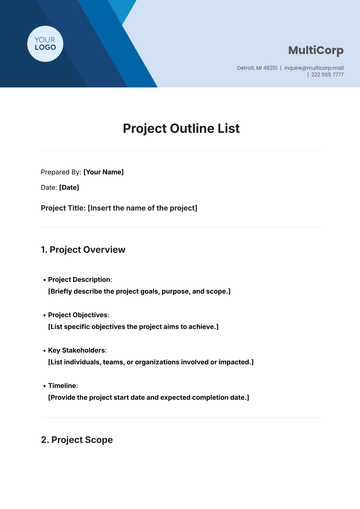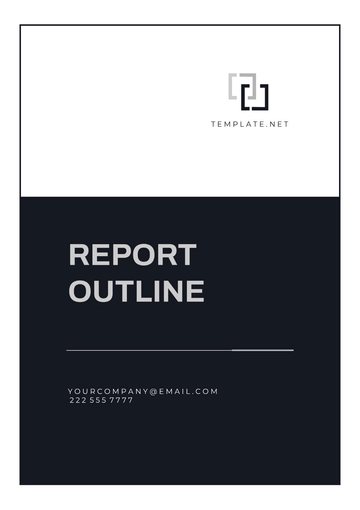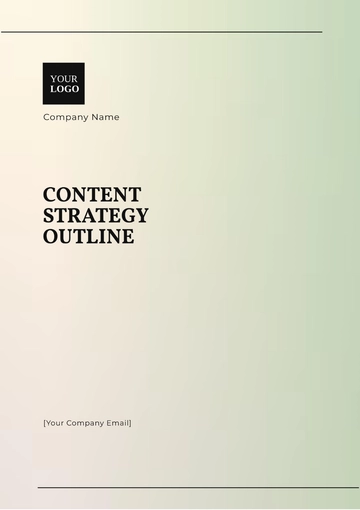Ethnography Study Outline
Prepared By: [Your Name]
Organization Name: [Your Company Name]
Date: [Date]
1. Introduction
1.1 Background
This study investigates the daily practices and community dynamics within the Greenfield neighborhood, an ethnically diverse urban area with a significant immigrant population. The neighborhood is known for its vibrant cultural festivals and strong community networks.
1.2 Research Problem
Despite its rich cultural life, there is limited academic research on how community interactions and cultural practices in Greenfield contribute to social cohesion and identity formation.
1.3 Objectives
To explore how different ethnic groups in Greenfield interact and form community bonds.
To understand the role of cultural festivals in fostering community spirit.
To identify challenges faced by immigrant communities in maintaining cultural traditions.
2. Literature Review
2.1 Existing Research
Previous studies have highlighted the role of community festivals in promoting social integration (Smith, 2052; Johnson, 2051). However, few studies focus specifically on the dynamics within ethnically diverse neighborhoods like Greenfield.
2.2 Theoretical Framework
The research will use Social Capital Theory to examine how social networks and community engagement contribute to social cohesion. This theory suggests that strong community ties enhance collective well-being and cultural continuity.
2.3 Research Gaps
Existing research lacks a detailed examination of the interplay between cultural practices and community dynamics in immigrant neighborhoods. This study aims to fill this gap by providing an in-depth analysis of Greenfield.
3. Research Questions and Objectives
3.1 Research Questions
How do different ethnic groups in Greenfield interact and form community networks?
What role do cultural festivals play in fostering a sense of community and identity?
What challenges do immigrant communities face in preserving their cultural traditions?
3.2 Objectives
To map out the social networks within the Greenfield neighborhood.
To analyze the impact of cultural festivals on community cohesion.
To document and understand the challenges related to cultural preservation faced by immigrants.
4. Methodology
4.1 Research Design
This study will employ a qualitative research design with ethnographic methods, including participant observation and in-depth interviews.
4.2 Data Collection Methods
Participant Observation: Researchers will attend community events, festivals, and regular social gatherings to observe interactions and behaviors.
Interviews: Semi-structured interviews will be conducted with community leaders, festival organizers, and residents from various ethnic backgrounds.
Field Notes: Detailed notes will be taken during fieldwork to capture observations and reflections.
4.3 Sampling
Purposive sampling will be used to select participants who are actively involved in community events and cultural practices. Approximately 30 participants will be interviewed, and observations will cover a range of community activities over six months.
4.4 Data Analysis
Data will be analyzed using thematic analysis to identify recurring patterns and themes related to community interactions, cultural practices, and challenges. Coding will be used to categorize and interpret the qualitative data.
5. Data Collection
5.1 Fieldwork Plan
Fieldwork will be conducted from January to June 2054. Researchers will attend key community events, including the annual Greenfield Cultural Festival and weekly neighborhood meetings.
5.2 Ethical Considerations
Informed consent will be obtained from all participants. Confidentiality will be maintained by anonymizing data and securing personal information.
5.3 Challenges and Limitations
Challenges may include gaining access to certain community groups and dealing with potential language barriers. These issues will be addressed through building rapport and employing bilingual research assistants where necessary.
6. Findings
6.1 Data Presentation
The study found that cultural festivals significantly enhance social cohesion by bringing together diverse groups and fostering intercultural understanding. Additionally, community networks are primarily built through participation in these events.
6.2 Interpretation
The findings suggest that cultural festivals act as a catalyst for community integration and identity formation. However, challenges such as economic barriers and language differences impact the ability of immigrant communities to fully participate in and benefit from these activities.
7. Recommendations
7.1 Practical Implications
For Community Leaders: Develop programs that support inclusive participation in cultural festivals and address barriers faced by immigrant groups.
For Policy Makers: Provide funding and resources to promote community events that celebrate cultural diversity and enhance social cohesion.
7.2 Future Research Directions
Future studies could explore the impact of specific cultural practices on community cohesion in other diverse neighborhoods and examine the role of digital media in maintaining cultural connections.
8. Conclusion
8.1 Summary of Findings
Cultural festivals play a crucial role in fostering community cohesion and preserving cultural identity within the Greenfield neighborhood. Despite some challenges, these events contribute significantly to social integration.
8.2 Contribution to Knowledge
This study adds to the understanding of how cultural practices and community events influence social dynamics in ethnically diverse urban settings.
8.3 Final Thoughts
The research highlights the importance of community engagement and cultural celebration in promoting social well-being and provides actionable recommendations for enhancing community practices.
9. References
Smith, J. (2052). The Role of Festivals in Community Integration. Urban Studies Journal.
Johnson, A. (2051). Cultural Practices and Social Cohesion. Sociology Review.
Ethnography Templates @ Template.net
